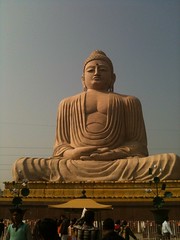| 3185458148 | The Quran | -The holy Islam book |  | 0 |
| 3185459856 | Conflict at Mecca | Muhammad's belief in Monotheism upset the economic culture in Mecca. Mecca's belief in polytheism was a driving point for tourists and travelers. Muhammad fled to Medina (Yathrib) with some of his own followers and they started a migration or hijra. He organized his followers into the Umma. |  | 1 |
| 3185459857 | The Hijra | Under pressure from authorities in Mecca, Muhammad and his followers fled to Medina in 622. Muslims call this move |  | 2 |
| 3185459882 | The Umma | a cohesive community, "community of the faithful". Provided Islam with a comprehensive legal and social code. |  | 3 |
| 3185462159 | Phrophets | spiritual leaders |  | 4 |
| 3185462160 | Five pillars | The basic tenets of Islam: Allah is the only god and Muhammad is his prophet; pray to Allah five times a day facing Mecca; fast during the month of Ramadan; pay alms for the relief of the weak and the poor; take a hajj to Mecca |  | 5 |
| 3185463286 | Jihad | A holy struggle or striving by a Muslim for a moral or spiritual or political goal |  | 6 |
| 3185464464 | The Sharia law | Law in Islamic countries which is derived from the Quran |  | 7 |
| 3185464465 | Caliph | A supreme political and religious leader in a Muslim government |  | 8 |
| 3185466101 | Shia | The second largest sect within Islam. It originated in the early centuries of Islam perhaps over a political dispute over who would be the next Caliph. This group believed that Muhammad's son-in-law and cousin Ali should be the Caliph. Over time this faction's religious interpretations and practices have also come to differ slightly from most Muslims. |  | 9 |
| 3185466102 | Umayyad Dynasty | Who: Governor of Syria, Muawiya, and his successors, Shi'ites, Sunnis, Kharijites, Uthman. What: Dynasty based on succession rather than election following the first period of caliphates. Continued advances in the kingdom, venturing as far as China and deep into Asia, claiming Afghanistan for a Muslim base. Fell apart due to tension in the kingdom between the Sunnis, Shi'ites, and Kharijites, the malawis (Muslim converts) and born Muslims, and the religion and state. When: 661-750 Where: Middle East, Damascus Why: Beginning of great strife in the Muslim community |  | 10 |
| 3185469299 | Expansion of islam | Work of early caliphs who spread the word through pilgrimages / 633-637, Muslims took control of the Byzantine Syria and Palestine and seized most of the Mesopotamia from the Sassanids / 640, Muslims conquered Byzantine Egypt and North Africa / 651, Muslims controlled the Sassanid dynasty and Persia / 781 Muslims controlled Hindu India, north Africa, and the lberian Peninsula / Muslims allowed conquered people (especially Christians and Jews) to maintain their own religious practices but required those who did not convert to Islam to pay a tax (jizya) / Positions of power and authority were reserved for Muslims |  | 11 |
| 3185471203 | Abu al- Abbas | 1st Caliph of the Abbasid Dynasty, he seized Damascus, Syria in 750 from the Umayyad family, supported by shiites and no-arab muslims, Baghdad capital of Muslim Empire |  | 12 |
| 3185471204 | Abbasid Dynasty | From 750-1258 this was the 3rd dyansty of the Islamic Caliphate. They built their capital in Baghdad after overthrowing the Umayyad caliphate. |  | 13 |
| 3185473787 | Harun al-Rashid | (786-809) He was the caliph of the Abbasid dynasty during its high point. He provided liberal support for artists and writers, bestowed lavish and luxurious gifts on his favorites, and distributed money to the poor and the common classes by tossing coins into the streets of Baghdad. |  | 14 |
| 3185482256 | Abbasid decline | Bandits attack → ↓trade →empire becomes poorer → Abbasids raise tax, Fatimids revolt, 1055: Seljuk Turks capture Baghdad |  | 15 |
| 3185486082 | Camels | *Merchants and traders used camels to help carry goods across deserts |  | 16 |
| 3185486083 | Caravans | Groups of people traveling together for safety over long distances |  | 17 |
| 3185487354 | maritime trade | trade on the seas and oceans that dates back almost 9,000 years ago in the *Mediterranean Basin* |  | 18 |
| 3185487355 | banks | NOUN the land alongside or sloping down to a river or lake |  | 19 |
| 3185488857 | organization of trade | International trade |  | 20 |
| 3185488858 | Al-Anadalus | Muslim kingdom in southern Spain, established in 756 |  | 21 |
| 3185491372 | veiling of women | -Islam was a strict patriarchy; fathers, brothers, and husbands guarded women sexually very carefull |  | 22 |
| 3185493141 | The Quran and women | Social customs were influenced by islamic beliefs: men were permitted to take up to four wives (polygamy), women were veiled in public |  | 23 |
| 3185494618 | sufis | a mystical Muslim group that believed they could draw closer to God through prayer, fasting, and a simple life |  | 24 |
| 3185494619 | al-ghazali | Brilliant Islamic theologian; struggled to fuse Greek and Qur'anic traditions; not entirely accepted by ulama |  | 25 |
| 3185497435 | sufi missionaries | the most popular "relaxed hippies" missionaries who were flexible and traveled throughout new Muslim territories. |  | 26 |
| 3185500746 | hajj | A pilgrimage to Mecca, made as an objective of the religious life of a Muslim. |  | 27 |
| 3185505114 | Byzantine court | royal purple, prostration, mechanical devises to inspire awe. |  | 28 |
| 3185506528 | Caesaropapism | the dual role of the state and leader of the church in which a temporal ruler extends his own powers to theological and ecclesiastical matters |  | 29 |
| 3185506529 | Justinian | Byzantine emperor in the 6th century A.D. who reconquered much of the territory previously ruler by Rome, initiated an ambitious building program , including Hagia Sofia, as well as a new legal code |  | 30 |
| 3185517387 | Theodora | the wife of Justinian, she helped to improve the status of women in the Byzantinian Empire and encouraged her husband to stay in Constntinople and fight the Nike Revolt. |  | 31 |
| 3185520098 | imperial | A policy of extending a country's power and influence through diplomacy or military force. |  | 32 |
| 3185520099 | Peasantry | Members of the lowest class in some social class systems. |  | 33 |
| 3185522370 | trade | Exchange of goods and services | 34 | |
| 3185526685 | Greens and Blues | Fans of chariot races separated into two factions, green(peasants) and blues (aristocrats). There was a fierce rivalry between the two groups until the seventh century. |  | 35 |
| 3185527682 | Church and state | Emperors were in charge of |  | 36 |
| 3185527683 | Byzantine education | Valued education, boys studied religion, medicine, law and math. Some wealthy hired tutors. Many wrote about religion and wrote about lives of saints and passed on ancient writings of Greeks and Romans to preserve their history. |  | 37 |
| 3185530183 | Iconoclasm | Opposing or even destroying images, especially those set up for religious veneration in the belief that such images represent idol worship. |  | 38 |
| 3185530184 | MT. Athos | where was the most famous monastery? |  | 39 |
| 3185532187 | Asceticism | The practice of spiritual exercises and mortifications such as prayer, fasting, abstinence, and self-denial for the purpose of acquiring and growing in virtue. |  | 40 |
| 3185533359 | schism | (n.) a formal split within a religious organization; any division or separation of a group or organization into hostile factions |  | 41 |
| 3185536275 | social problems | a condition that undermines the well-being of some or all members of society and is usually a matter of public controversy |  | 42 |
| 3185542991 | trade goods | Goods that are traded along trade routes. |  | 43 |
| 3185542992 | overland trade routes | Silk Roads |  | 44 |
| 3185545686 | Buddhism in central asia | The spread of Buddhism and Hinduism |  | 45 |
| 3185545687 | Buddhism in china | Spread by the Silk Roads, took form of Mahavana Buddhism. Blended with Daoism, formed 'Chan Buddhism' (aka Zen Buddhism). |  | 46 |
| 3185548712 | Manichaeism | ascetic, high ethical standards |  | 47 |
| 3185548713 | Mani | 1. (adj.) easily understandable, obvious (When I wrote the wrong sum on the chalkboard, my mistake was so manifest that the entire class burst into laughter.) 2. (v.) to show plainly (His illness first manifested itself with particularly violent hiccups.) |  | 48 |
| 3185551019 | epidemic diseases | A disease that spreads rapidly and extensively by infections and affecting many individuals at the same time. |  | 49 |
AP world history unit 4 Flashcards
Primary tabs
Need Help?
We hope your visit has been a productive one. If you're having any problems, or would like to give some feedback, we'd love to hear from you.
For general help, questions, and suggestions, try our dedicated support forums.
If you need to contact the Course-Notes.Org web experience team, please use our contact form.
Need Notes?
While we strive to provide the most comprehensive notes for as many high school textbooks as possible, there are certainly going to be some that we miss. Drop us a note and let us know which textbooks you need. Be sure to include which edition of the textbook you are using! If we see enough demand, we'll do whatever we can to get those notes up on the site for you!

